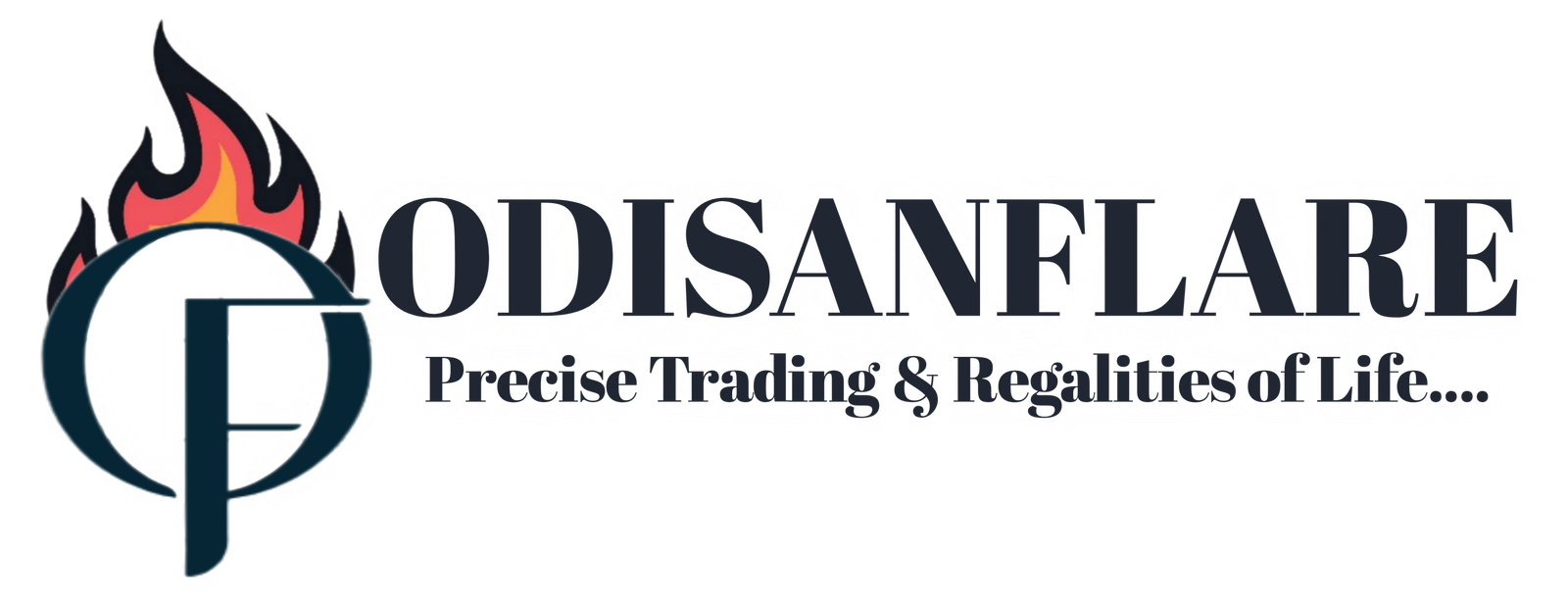Ethereum: The Blockchain for Everything
- Posted on 30 November, 2022
- crypto trading
- By Somto Daniel

Imagine a world where you can create and run your own decentralized applications (dApps), secure complex agreements with strangers on the internet without a middleman, and even own a piece of digital art or virtual real estate, you can't have all without needing anyone's permission. Welcome to the world of Ethereum, a blockchain that aims to be the "world computer," powering a new era of decentralized technology. While Bitcoin revolutionized money, Ethereum is on a mission to revolutionize everything else.
The Birth of Ethereum: From Idea to Reality
Ethereum was born out of a desire to push the boundaries of what blockchain technology could do. In 2013, a 19-year-old programmer named Vitalik Buterin saw the potential of blockchain beyond just currency. While Bitcoin had shown the world how to create a decentralized digital currency, Buterin envisioned a platform that could be a foundation for all kinds of decentralized applications essentially, a blockchain that could be programmed to do just about anything.
Vitalik Buterin, along with a team of brilliant minds, launched Ethereum in 2015. They introduced the concept of smart contracts, self-executing contracts where the terms of the agreement are directly written into lines of code. Smart contracts allowed developers to create decentralized applications (dApps) that run exactly as programmed, without any possibility of downtime, fraud, or interference.
Related stories:
👉🏽Investing In Crypto Currency For A Long Term Gains
👉🏽Crypto Currency
👉🏽Dogecoin: The Meme Coin That Took The World By Storm
Why Ethereum Matters: Beyond Currency
While Bitcoin was built to be "digital gold," Ethereum was built to be "digital everything." Here’s why Ethereum is such a big deal:
-
Smart Contracts: The heart of Ethereum's innovation lies in its smart contracts. Think of a smart contract as a vending machine for legal agreements. You put in the terms, and it automatically dispenses the results. Need to buy a house, but you don’t trust the seller? A smart contract can ensure that the property deed is transferred only when payment is made. It’s a game-changer for industries like real estate, law, supply chain, and more.
-
Decentralized Applications (dApps): Ethereum provides a platform for developers to build decentralized applications. From finance (DeFi) apps that offer loans and interest without a bank to games where players truly own their in-game assets, dApps represent a whole new way of interacting online. Unlike traditional apps, dApps run on the Ethereum blockchain, making them secure, transparent, and resistant to censorship.
-
Decentralized Finance (DeFi): DeFi is one of Ethereum’s biggest success stories. By allowing developers to create decentralized financial products, Ethereum is democratizing finance, enabling anyone with an internet connection to access loans, insurance, and investment products without relying on traditional banks or financial institutions.
-
Non-Fungible Tokens (NFTs): Ethereum is the home of NFTs, unique digital assets that represent ownership of a specific item or piece of content, like art, music, or even a tweet. NFTs have created a new way for artists, musicians, and content creators to monetize their work and for fans to engage with the content they love.
-
Interoperability: Ethereum is working towards a future where it can seamlessly communicate and interact with other blockchains. This vision of a multi-chain universe, where assets and data can move freely between different blockchains, is one of the next big frontiers in blockchain technology.
The Motivational Power of Ethereum: Quotes to Ignite Your Imagination
Building on Ethereum’s platform requires a mix of curiosity, creativity, and boldness.
The people who are crazy enough to think they can change the world are the ones who do.
Ethereum is built by dreamers who believe in a decentralized, open future. Are you crazy enough to join them?
Don’t watch the clock; do what it does. Keep going..
Ethereum’s path hasn’t been easy; it’s been marked by challenges and setbacks. But like the clock, it keeps moving forward.
You miss 100% of the shots you don’t take.
If you’re thinking about diving into Ethereum whether as a developer, investor,just go for it. The future is wide open!
Trending Now: 👉🏽Bitcoin: The Original Crypto Currency
The Lighter Side of Ethereum: Ether, Gas, and Memes
Of course, it wouldn’t be Ethereum without a few quirks. Let’s talk about Ether (ETH), the cryptocurrency that powers the Ethereum network. Think of Ether as the fuel or "gas" that powers the Ethereum engine. You need Ether to pay for transactions, run smart contracts, or create new dApps. This has led to some pretty amusing analogies: "Ethereum is the car, and Ether is the gasoline."
Then there’s the concept of “gas fees.” Ever tried to buy something on Ethereum and noticed you’re paying more in "gas fees" than the actual cost? Imagine paying more for parking than the pizza you went to pick up! It’s one of Ethereum's biggest pain points, but developers are hard at work on solutions like Ethereum 2.0, which aims to make transactions faster and cheaper.
And let’s not forget the memes! The Ethereum community is known for its creativity and humor. From "Vitalik dancing" GIFs to memes about "gas wars," there’s never a dull moment. In fact, some argue that the meme culture around Ethereum is as important as the technology itself because, after all, it’s the community that makes the blockchain come alive.
Challenges and the Road Ahead: What’s Next for Ethereum?
While Ethereum has accomplished a lot, it still faces significant challenges. High gas fees, scalability issues, and environmental concerns related to its proof-of-work consensus mechanism have been areas of criticism. However, Ethereum 2.0...a major upgrade that aims to transition Ethereum to a more scalable, energy-efficient proof-of-stake model promises to address these concerns.
But this transition is like switching the engines on a plane mid-flight. It’s ambitious, complicated, and requires coordination across the entire community. Yet, as Henry Ford once said, "When everything seems to be going against you, remember that the airplane takes off against the wind, not with it."
Conclusion: Ethereum, The Blockchain for Everything
Ethereum is more than just a technology; it’s a movement. It’s about decentralizing the web, democratizing finance, and reimagining the way we interact, transact, and create in the digital age. Ethereum’s vision is to be a platform where anyone can build and run unstoppable applications, where contracts are self-executing, and where digital ownership is verifiable and secure.
Yes, there are challenges ahead. Yes, there will be setbacks and skeptics. But remember, “The only way to do great work is to love what you do.” — Steve Jobs. The Ethereum community is filled with people who love what they do, who believe in the power of decentralization, and who are passionate about building a better, fairer internet.
So, whether you’re a developer dreaming of the next big dApp, an investor looking for the next opportunity, or just a curious mind wanting to understand the future of technology, Ethereum is a place for you.
And remember, in the world of blockchain, “Fortune favors the bold.” So, be bold, be creative, and let’s build the future one block at a time.
You might also like:
👉🏽The Truth About Day Trading Vs. Long Term Investment
👉🏽Cold Wallets: Hot Vs Cold Storage
👉🏽 Understanding Crypto Currency charts




0 Response